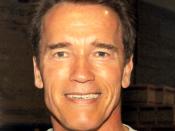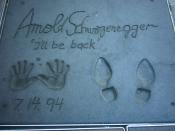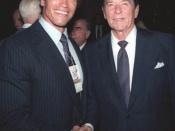Television is almost as 'essential' as food to some or most people in their everyday life. And that means it has a very influential effect on the people watching it. Anything inappropriate shown on television would be imitated by them, and this could lead to unwanted induced violence act in them.
In television, violent images are seen in films, commercials, sitcoms, cartoons, news broadcasts, and reality-based programs. More of these types of so-called-violent programs are being shown, rather than educational ones, because it is more interesting to most people. These preferred TV programs encourages program-makers to make more of what the audiences want. The purpose of mass media is to sell audiences to advertisers, and violence is a predictable way to guarantee a large audience.
The other cause of this induced violence is from watching shows with violent heroes doing 'glamorized' violence. These 'attractive' heroes may psychologically arouse some people, most probable their fans, to copy the action of their idolized hero.
For example, Arnold Schwarzenegger plays as a cyborg in the movie The Terminator. His capabilities, in the movie, to withstand bullets or fighting villains without being hurt, would seem like the most effective way to solve a problem. People would, too, start to fantasize about being able to do the same thing.
What more to children. Susan R. Johnson, M.D., Assistant Clinical Professor of Pediatrics, and also a mother of one, have investigated and observed her own son in one of her experimental observation. After watching 'Mission Impossible' in the airplane, even without any sounds on, with the images itself has caused nightmares on her son for 6 months. Cartoons nowadays also contribute to the factor. They show cartoon character fighting the 'bad guys'. Little kids aren't expected to know the difference between what's real and what's pretend.


